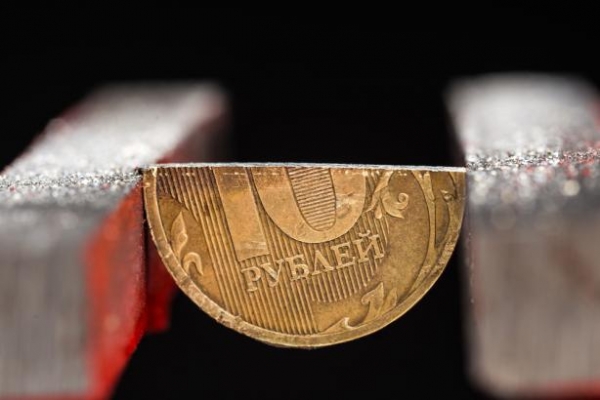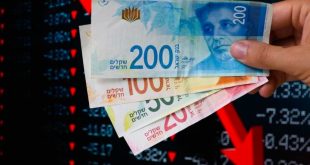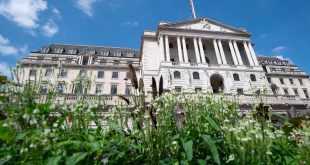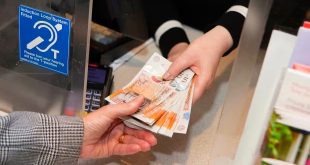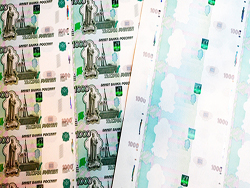
In Russian public hidden huge reserves of increase of efficiency that can be released, creating a competitive environment
Article by Boris Titov on how we get the economy back to growth, leaves the impression that the author itself is bad realities of our economic and political situation. A significant portion of the text is devoted to advertising a main idea that he had long been expressed together with colleagues on “the Stolypin club,” the monetary pumping the economy to stimulate growth. The debate on this issue is forged a spectacular image of the enemy — the evil liberal-monetarist, who, having read the theoretical books that categorically prevents the real economy was finally given access to the money needed for development. You should immediately get rid of the enemy-the liberal, give money to everyone — certainly not just so, and under the watchful control, “through development institutions”, “secured project bonds companies investment agents” — so that none of the mouse that wants to pull equity money on the foreign exchange market, not slipped.
Epic to argue with a liberal pest, secretly wanting to strangle the economy in the grip of a money shortage, of course, exciting experience, however, poorly related to real life. Here the author of these lines, for example, never had any bitter opponent of easing monetary policy, a growing economy needs money supply, in this I fully agree with Boris Titov. We have seen many countries in recent decades actively resorted to monetary easing in order to spur growth. But there is one important “but”: the issued funds must fall on fertile ground. So they will not turn into uncontrolled inflation should be stimulated and grow business activity that absorbed the money and didn’t give it to a trivial result in the growth of prices and devaluation.
Need very badly to know and understand the current situation in Russia, not to notice that business activity we are dead.
Inputs markets are closed tightly — and not only in strategic areas (where blocking the entrance to the market was legally executed almost a decade ago), but also in the unit sphere of retail trade and services — try to open a hairdresser, and you will find out that all the salons competing in the district “hold” the family of the district head or another influential representative of the system, and find yourself face to face with all imaginable inspection bodies in the world. The share of public sector in Russia exceeded 70% of GDP, among the top 30 largest companies by revenue, two-thirds of total revenue comes from state-owned companies, among the top 100 — more than half (and taking into account quasicyclic companies, de facto linked to the government, and even more).
Boris Titov, realizing this, accompanied by their reasoning the following: “most Importantly, these projects again were not ineffective monsters for money laundering related to government structures, and there have been many private enterprises, would live in a competitive environment”.
Show me such a competitive environment in Russia, where there are “numerous private enterprises”, and “inefficient state structures-monsters” is securely pushed into the background? Why even talk about it in a situation where the state continues a large-scale attack on the private sector on all fronts — from the acquisition of “Bashneft” and “Transaero” and strengthen the oligopoly of state-owned banks until recently absolutely illegal extrajudicial demolition of small private shops in Moscow?
Any development in Russia and the question without the deepest de-monopolization of all spheres of our economy and total exit of state.
In all qualities — from the ownership of assets to the administrative regulator of market entry. Here normal economic programme, which will return Russia to the growth in our state monopolies hidden by huge reserves of increase of labour productivity and the efficient use of investment funds that needed to be released through the creation of a fully competitive environment. In the US the largest gas producer has a share in national gas production is only 3.5% — not 70%, not 80%, and 3.5%! Therefore, there is rising productivity and falling prices (the price at the Henry Hub below $100 per thousand cubic meters), which promotes the relocation of industries back to America (this was even said Putin at a meeting of the Presidential Commission on the fuel and energy sector — “because in the United States for less”). The banking sector: much has already been said that high interest rates on loans is a result of the policy of the Central Bank, but high margin and high operating expenses resulting from the oligopoly of state-owned banks and the lack of real competition.
Well, the results of pumping money the structure of the economy that we have, we could examine specific examples. The first example is 2013. Yet there are no sanctions, the price of Urals crude was $108 per barrel, but the GDP growth slipped to 1%, industrial growth has gone to zero, and investment is negative. In 2013, total investment in fixed capital from budgets of all levels amounted to 1.9 trillion rubles, and the total investment program of the 10 largest state-owned companies — another 2.8 trillion, for a total of almost 5 trillion rubles. Little money? No problem at all. So where’s the growth? Gone, as the economists say, “withdrawn from circulation capital”: the empty pipelines, bridges on island Russian on which no one rides, large hydroelectric power plants with a utilization rate of installed capacity 30%, 200 000 places stadium in Sochi, where the population is less than half a million. The largest contractor “Gazprom” on building of pipelines stroygazconsulting is also the largest investor in the construction of office space in Moscow-city where download, according to a study by RBC, is from 7% to 48%. You want to try to pump up an economy with money?
An example of the second current VEB salvation from bankruptcy, which is seeking 1.5 trillion rubles. And the web is the “development Institute” through which money was distributed under a senseless loss-making projects — exactly the pattern that is offered in the Stolypin club.
The third example — the fact is that currency issuance is de facto already underway, which is not tired to repeat Sergey Aleksashenko, and its dimensions are not small, about exceeds half a trillion last year. Results in the form of growth we don’t see. But inflation and devaluation, which they treacherous liberal monetarists, hurts the pockets of Russians.
Well, the last. It’s ridiculous to talk about Russia’s return to growth in conditions of confrontation with the outside world and the international isolation that we have brought the current political leadership of the country. What we grew up with in the past? Unrestrained borrowed money in the West. The portfolio of the external debt of our companies and banks rose by about $100 billion 10 years ago to nearly $700 billion in the summer of 2014. Then against Russia sanctions were announced, and we were cut off from international financial markets. And will be cut off until the current leadership of the country continues its foreign policy. In just a year and a half since July 2014 1 January 2016 the loan portfolio of foreign loans of our companies and banks declined by almost $200 billion to $473 billion And at such an unprecedented compression of credit you wonder that the money is expensive. What does the Central Bank? The Central Bank only measures the temperature in the chamber for seriously ill patients. Need a disease to treat, and not to indulge complexes and phobias weakening the patient.
Our economy needs deep structural reforms, primarily in the form of global monopolization of all sectors (the author of these lines wrote a lot, including on the pages of Forbes, how to do it) and the full exit of the state from the economy. We need decisive normalization of relations with the West and ending the confrontation. It is clear that the current authorities in principle do that, and the question of the return to growth lies in the political arena. Judging by the phrase “and then political and institutional reforms” in the article of Boris Titov, and it such does not make.
As for now, monetary easing in a monopoly economy with high corruption and the decisive influence of government insiders Russia has many times passed. It’s so painfully beat on our citizens, that call for this today, just gained mad experience “printing money”, is simply irresponsible.



